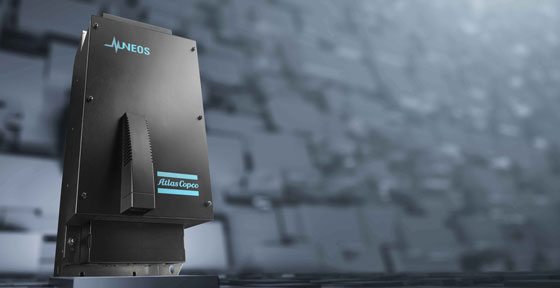This is the third and final installment of our series on understanding variable frequency drives and appropriate applications; this article discusses why variable frequency drives are not suitable for every rotary screw air compressor application. If you missed Part I or II of the series, you can read those articles here: Understanding Variable Frequency Drives, Part I, and Understanding Variable Frequency Drives, Part II.
Why not use a variable frequency drive on every rotary screw compressor?
VFDs are not suitable for every rotary screw air compressor application. Because the voltage has to be sent through a drive before reaching the motor, VFD compressors are not as efficient as fixed speed air compressors at 100 percent load. In a fixed speed compressor, you simply have a starter sending power to the motor, whereas a VFD compressor has some energy losses in the form of heat. Fixed speed compressors are ideally suited for a base load that works in conjunction with a VFD compressor and adjusts to the varying demand of the air system.
Air compressors are often installed in dirty, dusty, hot and wet environments. Many drives are not originally designed with air compressors in mind and thus are not suitable for these environments. Dust and dirt can be ingested by the drive’s cooling fans and cause the drive to eventually overheat and fail.
Fluctuating power supplies causing voltage imbalances or induction welders which induce electromagnetic noise onto the plant’s power grid are also the enemy of most compressor drives. These drives can fail and potentially damage the compressor’s motor resulting in costly repair bills and extended downtime for the plant’s air system.
Are there solutions for harsh environments and power grid concerns?
Drawing on years of experience with variable speed drive technology, the Atlas Copco Neos drive was designed to meet the unique torque demands of a rotary screw air compressor and to excel in the harsh environments where compressors are installed. The Neos is designed to handle fluctuating power grids and noise found in industrial factories without faulting out or needing to be reset. It is IP5x-rated, meaning dust will not affect operation of the equipment, allowing compressors to be installed in dusty environments. The Neos is also rated for outdoor installation under a lean-to and for temperatures up to 122°F.
Atlas Copco designed the Neos drive specifically for air compressors and the environments where these compressors are installed. Learn more about variable frequency drives by checking out the following articles, or simply fill out our Request a Quote form and an Atlas Copco representative will be in touch with you shortly.
- Understanding Variable Frequency Drives, Part I
- Understanding Variable Frequency Drives, Part II
- Top 3 Benefits of Variable Speed Drives
Source: Compressed Air Blog


